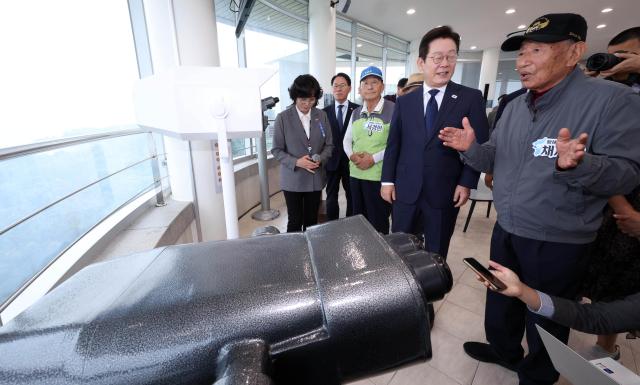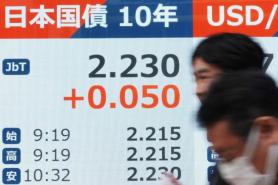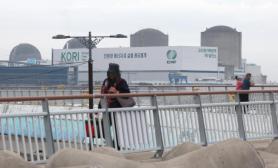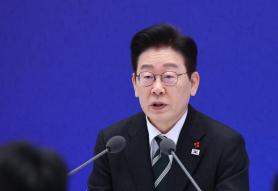
SEOUL, October 03 (AJP) - President Lee Jae Myung said on October 3 that communication among divided families must move forward and pledged to ask North Korea to treat the matter on humanitarian grounds.
Lee invited eight displaced people to the Peace Observatory in Ganghwa, Incheon, on the first day of the Chuseok holiday. He told them decades of separation between relatives were the result of political failures and vowed to work toward improving inter-Korean relations.
"Earlier, I saw geese flying freely in a line across the river. Animals can move back and forth without restriction, but people draw lines and point guns at each other if they cross," Lee said. "It is heartbreaking that this has been our reality for so many decades."
He noted that tensions between Seoul and Pyongyang have now cut off nearly all contact. "There was a time when families could be reunited and exchange messages, but now even that is gone. I feel remorse that this situation is due to shortcomings in politics, including my own," he said.
Lee said he hoped hostility would ease so families could at least learn whether relatives are still alive. "Time is not unlimited. I will do everything possible to improve relations so that the day when families can hear news from their loved ones and meet again comes sooner," he added.
During the meeting, participants shared personal requests. One said, "If I have the chance, I want to visit my hometown." Another asked, "I hope the president can help us find out whether our relatives are alive." Others pleaded for even the ability to exchange letters.
Lee responded that humanitarian concerns should not be blocked by political or military confrontation. "Even if we compete or clash in other areas, confirming whether divided families are alive and allowing at least the exchange of letters is the responsibility of politics on both sides," he said. He added that relations between Seoul and Pyongyang are "completely cut off and in very poor condition" and remarked that he would ask the North to consider the issue from a humanitarian perspective.
The issue of divided families has remained one of the most enduring humanitarian wounds on the Korean Peninsula. Since the 1953 armistice formalized the division, many families have never learned the fate of relatives across the border. More than 70 years later, most of those separated by the war are elderly or have died, and opportunities for reunions grow more limited.
According to a government survey, as of 2024, around 134,160 people had registered with the Unification Ministry as separated family members for possible reunions. But only about 37,806 of them remain alive, and more than 66 percent are aged 80 or older.
In 2021, the Unification Ministry reported that among 47,004 applicants still alive, the majority were aged 80 or older.
Advocates warn the clock is running out. Many registered separated family members have passed away without seeing or hearing from their loved ones in the North. The cessation of exchanges—both official and private—has left many families in limbo.
Copyright ⓒ Aju Press All rights reserved.




